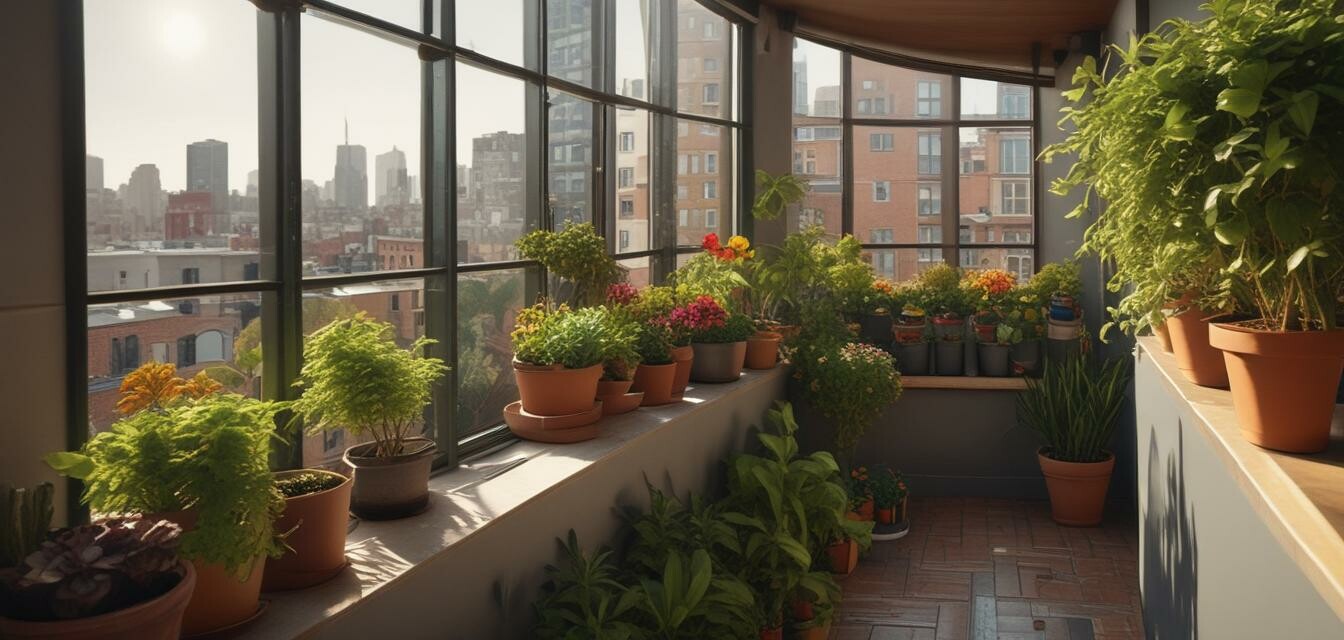
The Future of Balcony Gardening: Trends for 2025
- In 2025, sustainability will be at the forefront of balcony gardening trends.
- Smart gardening tools will enhance urban gardening experiences.
- Vertical gardening techniques will continue to gain popularity.
- Unconventional plant choices will shape creative urban landscapes.
As urban living spaces shrink and the demand for green areas increases, balcony gardening continues to evolve. With the year 2025 just around the corner, it's essential to stay ahead of the curve. This article predicts the trends that will shape the future of balcony gardening and explores innovative methods that will inspire city dwellers to cultivate their green sanctuaries.
1. Sustainability in balcony gardening
The push for sustainability is an ongoing urban trend, and balcony gardening will not be left behind. From eco-friendly containers to organic soil amendments, urban gardeners will increasingly prefer products that do not harm the environment.
Key sustainable practices:
- Use of recycled materials for planters and trellises
- Collection and utilization of rainwater for irrigation
- Composting kitchen waste to create nutrient-rich soil
2. Smart gardening tools
With advancements in technology, smart gardening tools will revolutionize how we maintain our balcony gardens. In 2025, you can expect to see an increase in tools equipped with sensors that help track plant health and provide reminders for watering and fertilization.
Popular smart tools include:
| Tool Type | Features |
|---|---|
| Smart planters | Self-watering systems and moisture monitoring |
| Smart irrigation systems | Automated watering schedules based on weather forecasts |
| Plant health monitors | Soil nutrient analysis and pest detection |
3. Vertical gardening techniques
Maximizing space on balconies is essential. Vertical gardening has gained traction and will continue to thrive in 2025, providing a solution for small areas to flourish with greenery.
Benefits of vertical gardening:
- Maximizes limited space
- Improves air circulation around plants
- Creates stunning visual displays
For more information on vertical gardening practices, check out our article on Vertical Gardening.
4. Unconventional plant choices
In 2025, the diversity of plants grown on balconies will expand significantly. Gardeners will explore unconventional species that are hardy and suitable for small spaces. Here are some expected favorites:
| Plant Type | Features |
|---|---|
| Edible flowers | Beautiful and beneficial; ideal for attracting pollinators |
| Fruits in containers | Compact varieties such as dwarf citrus and berry plants |
| Succulents | Low maintenance and available in various shapes and sizes |
To learn more about unique plant options for small spaces, visit our section on Balcony & House Plants.
5. Eco-friendly products
As more gardeners aim for eco-friendly practices, the market will respond with sustainable products. Expect to see a range of biodegradable planters, organic fertilizers, and natural pest deterrents launched in the upcoming years.
Examples of eco-friendly gardening products:
- Biodegradable seed pots made from bamboo components
- Natural pesticides crafted from essential oils
- Organic compost blends sourced from kitchen waste and yard trimmings
Keep an eye out for these innovations by following our News and Trends section.
Conclusion
As we approach 2025, the future of balcony gardening looks bright and filled with potential. By embracing sustainability, utilizing smart technology, and exploring creative planting techniques, urban gardeners will have the tools they need to transform their small spaces into lush oases. Stay informed and inspired by exploring fresh ideas and innovations to make the most of your balcony garden.
Pros
- Encourages environmental sustainability
- Maximizes limited space and creates beautiful displays
- Enhances biodiversity in urban areas
Cons
- Requires initial investment in smart tools
- Maintenance can be demanding for beginners
- Plants may need specific care depending on conditions